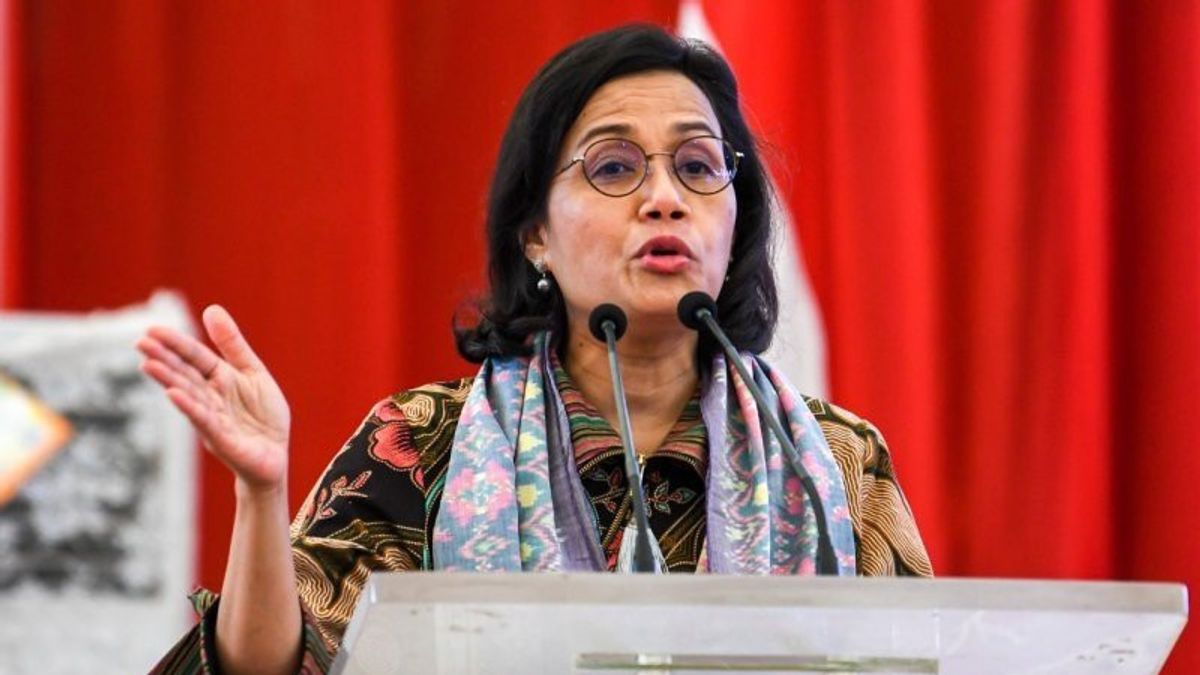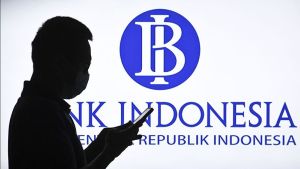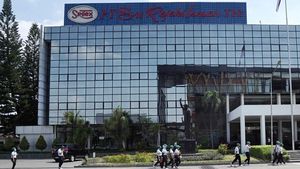Minister of Finance Sri Mulyani Indrawati said the global economy is in a slowdown trend, especially experienced by Europe and China.
Meanwhile, although economic performance tends to strengthen, US fiscal conditions are experiencing significant pressure that has sparked financial market turmoil with UST's yield rising to a record high in the last 1.5 decades.
"The dynamics of the slowdown and the increasing risk of global financial market uncertainty have a significant impact on almost all emerging markets, including Indonesia," he explained in a statement Wednesday, November 8.
Meanwhile, the local exchange rate financial market is under pressure due to capital outflows in both the stock market and bonds. In addition, real economic activity was also affected, as reflected in the performance of exports experiencing contraction. Where Indonesia's economic growth in the third quarter of 2023 was recorded at 4.94 percent, slowing down compared to the previous quarter of 5.17 percent, mainly due to the decline in export performance of goods and services.
Sri Mulyani said the global slowdown trend is expected to continue and has the potential to drag growth in the fourth quarter again below 5 percent so that overall economic growth in 2023 is at risk below 5 percent.
"In addition, the impact of El Nino, which has driven an increase in volatile food inflation due to rising rice prices, also needs to be watched out for," he said.
Sri Mulyani explained that in response to this condition, a policy package was needed to stabilize the economy and protect people's purchasing power by preparing three policy packages.
The first policy is the thickening of social assistance to protect the purchasing power of the poor and vulnerable. This policy includes the provision of additional rice food assistance of 10 kg/KPM for 1 month with a target of 21.3 million KPM including PKH and/or Basic Food Recipients, with a budget of IDR 2.67 trillion.
As well as El Nino's Direct Cash Assistance (BLT) amounting to Rp200 thousand/month during November to December 2023 with a target of 18.8 million KPM recipients of basic necessities with a budget of Rp7.52 trillion.
The second policy is to accelerate the distribution of the KUR program aimed at strengthening MSMEs to support growth in the midst of increasing interest rates. The acceleration of distribution of the KUR program is carried out through weekend banking, so that the absorption of KUR distribution is expected to increase and be more optimal.
The realization of KUR in September 2023, which reached IDR 177.5 trillion, is expected to be IDR 297 trillion by the end of 2023.
The third policy is to strengthen the housing sector. This policy was taken into account the effects of large sector multipliers. As of September 2023, the performance of the Housing sector was in a slow trend, so intervention was needed to revive the performance of this sector.
Sri Mulyani said that this is expected to be able to support economic performance in the midst of the risk of a global slowdown.
The support provided for the housing sector is targeted for commercial homes, low-income people's homes (MBR), and houses for the poor with a total estimated budget requirement of IDR 3.7 trillion for 2023 and 2024.
"Support for commercial housing is provided through the provision of VAT DTP for houses with a maximum selling price of IDR 5 billion," he explained
Sri Mulyani explained that what is borne by the government is the basis for the Imposition of Taxes (DPP) up to IDR 2 billion for 14 months, from November 2023 to December 2024.
VAT-DTP is given with the provisions, from November 2023 to June 2024, VAT DTP is given 100 percent, and from July 2024 to December 2024, VAT DTP is given at 50 percent.
اقرأ أيضا:
In addition, support for Low-Income Communities (MBR) is carried out through the provision of Administrative Fee Assistance (BBA) for 14 months with an aid value of Rp. 4 million per house. From November to December 2023, 62 thousand units were given and in the period of 2024 it was given to 220 thousand units.
Meanwhile, support for poor people's homes is carried out through the addition of the target of Integrated Prosperous Home Assistance (RST) of 1.8 thousand houses in November-December 2023. The RST assistance reaches Rp. 20 million per house.
"In the midst of the challenges faced, with these various economic policy packages, it is hoped that the APBN will continue to be optimized to carry out its stabilization and shock absorber functions to continue to protect the purchasing power of the poor and vulnerable, and can maintain economic growth in 2023 in the range of 5 percent," he explained.
The English, Chinese, Japanese, Arabic, and French versions are automatically generated by the AI. So there may still be inaccuracies in translating, please always see Indonesian as our main language. (system supported by DigitalSiber.id)
















